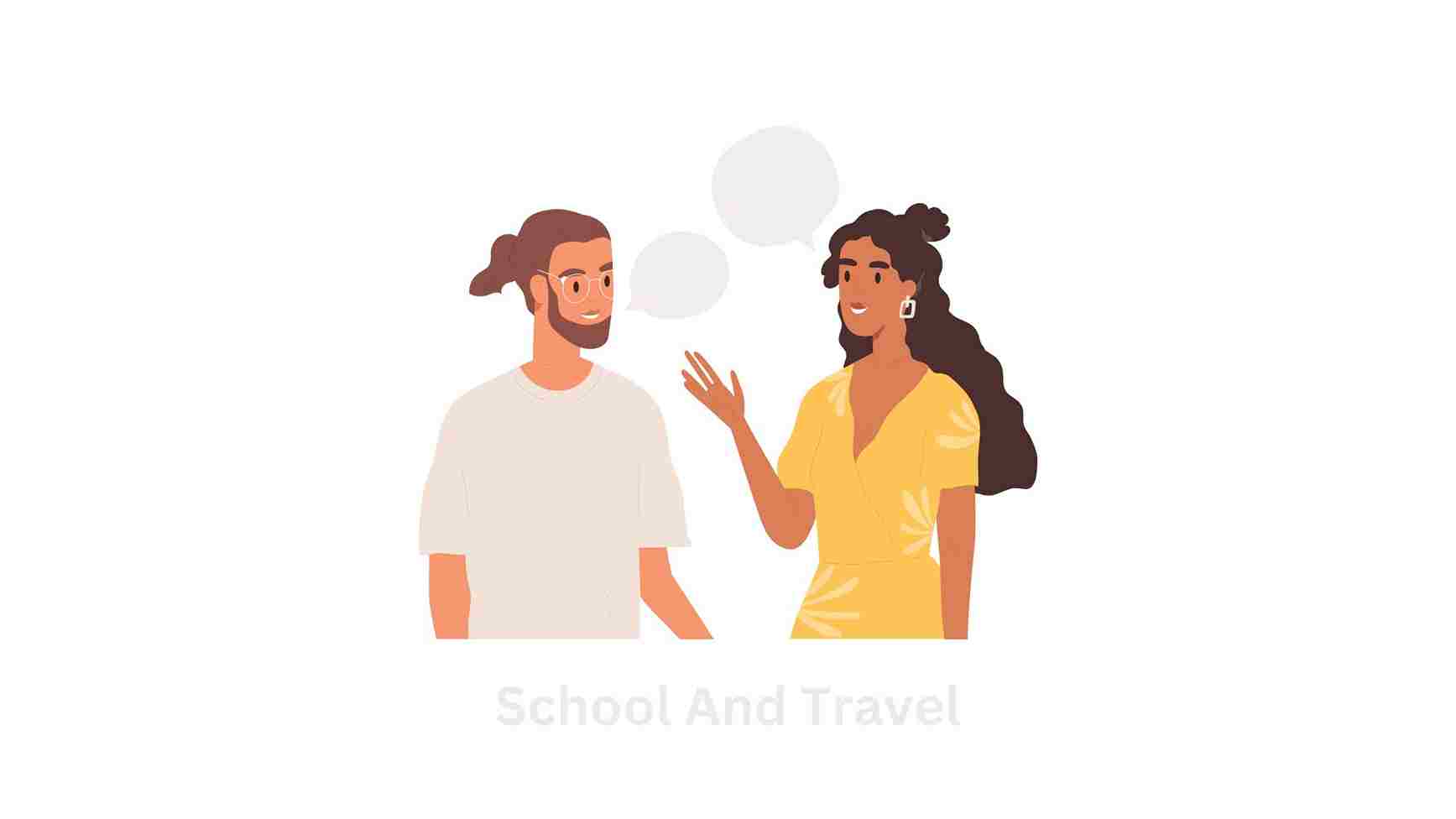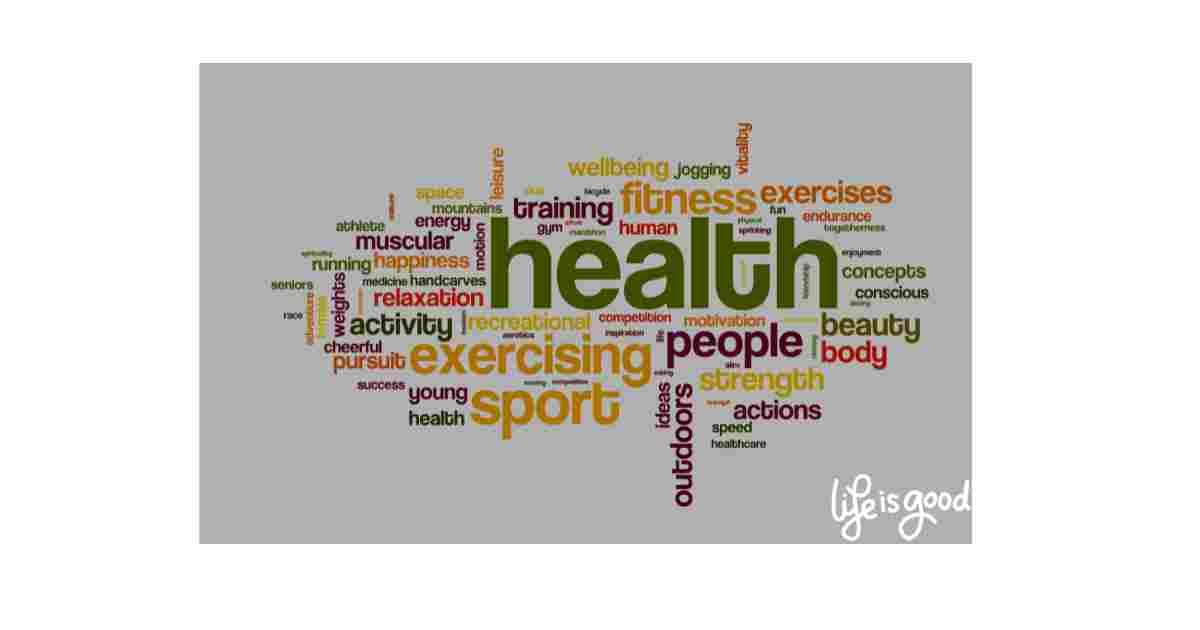Balancing love and school can feel like walking a tightrope. But it doesn’t have to be stressful. With good planning and clear communication, you can keep your grades up and your relationship happy.
Keep reading to find simple tips that can help.
What is a Relationship?
A relationship is a connection between two or more people or things. This connection can be based on friendship, love, family, work, or other social interactions.
In relationships, people often share time, emotions, and activities with each other. Relationships can make life more enjoyable, but they can also be challenging at times.
They often require effort from everyone involved to stay healthy and happy.
What are Studies?
Studies in college are focused learning on specific subjects or skills. You go to classes, read books, do assignments, and take tests to show what you’ve learned.
This helps you gain knowledge and qualifications to prepare you for a job or further education. It’s like a more advanced version of school, where you often get to choose what you want to study.
Why Balancing Relationships and Studies is Important in College
Balancing relationships and studies in college is crucial because both are important for your well-being and future.
Studies help you gain the skills and knowledge you need for a career, while relationships offer emotional support and happiness.
If you focus too much on one and neglect the other, you could either hurt your grades or feel lonely and stressed. Finding a balance helps you do well in school and enjoy your time in college.
Challenges of Combining Love and Academics
1. Time Crunch
One of the most immediate challenges you’ll face is simply not having enough hours in the day.
Between attending classes, studying, and completing assignments, your academic responsibilities alone can take up a significant chunk of your time.
When you add a relationship into the mix, it becomes crucial to manage your time wisely so that neither your grades nor your relationship suffers.
2. Distraction
Being in love is wonderful but can also be a major distraction from your studies.
Whether you’re texting your partner during a lecture or thinking about your last date instead of focusing on your homework, these distractions can add up and affect your academic performance.
Overcoming this challenge often involves setting clear boundaries and dedicated time slots for studying and spending time with your loved one.
3. Stress
Academics and relationships come with unique stressors, from exam pressures to arguments with your partner.
Balancing a relationship’s emotional ups and downs while keeping up with your academic responsibilities can sometimes be overwhelming.
Stress management techniques like exercise, mindfulness, and open communication can help.
4. Different Priorities
You may have deadlines or exams that conflict with important events in your relationship, like anniversaries or family gatherings.
This can lead to tension and disagreements about where your true priorities lie. Honest and timely communication about your schedules can help both parties understand and respect each other’s commitments.
5. Jealousy or Insecurity
Being in a relationship in an academic setting often involves interacting with various people, including classmates of the opposite sex.
This can lead to feelings of jealousy or insecurity, which can strain the relationship. Trust and open dialogue are key to overcoming these feelings.
6. Limited Emotional Bandwidth
School can be emotionally taxing, filled with highs and lows. You might find being an attentive, supportive partner difficult if you’re emotionally drained from school.
Likewise, relationship issues can drain you emotionally, making it hard to focus on your studies. Checking in with yourself and your emotional state is crucial, taking time to recharge when needed.
7. Future Uncertainty
Long-term relationships often involve discussions about the future, including potential moves for jobs or further education.
These considerations can conflict with your academic choices, such as deciding to study abroad or pursue graduate studies in another city, complicating your relationship.
8. Social Pressure
The opinions of friends, family, and even professors can weigh heavily on you.
There may be pressure to either focus solely on academics (“You’re wasting your time dating!”) or to take steps forward in your relationship (“When are you getting married?”).
It’s important to remember that your relationship and your academics are your own, and only you can decide how to balance them.
9. Lack of Support
You might encounter people in academic or relationship circles who don’t understand the importance of the other aspects of your life.
Neither side’s lack of support or understanding can make balancing the two even more challenging.
10. Impact on Grades or Performance
At the end of the day, the most concrete measure of your academic success is your performance.
If your relationship becomes too time-consuming or emotionally draining, it could negatively affect your grades or participation in extracurricular activities, which can have long-term repercussions on your academic and professional future.
Major Mistakes When Balancing Relationships and Studies:
1. Ignoring Studies
It’s easy to get swept up in the excitement of a new relationship, but this should never come at the expense of your academic responsibilities.
Poor grades affect your immediate future and could have long-term implications.
2. Too Much Time Together
Balance is key in any aspect of life, including relationships.
Spending all your free time with your partner can harm the relationship because you both might feel smothered. Plus, you’ll have less time for homework, studying, and other important activities.
3. Ignoring Friends
Your friends were there before the relationship, and they’ll be there after, but only if you continue to nurture those friendships.
Ignoring your friends can lead to a lack of a support system, which you’ll need for academic and relationship advice.
4. Lack of Communication
Communication is crucial in any relationship, especially when juggling multiple priorities.
You need to have open conversations with your partner about how much time you can spend together without compromising your academic obligations.
5. Jealousy
Feeling envious of your partner’s time spent studying or with classmates is natural but can be toxic if not managed.
This can cause strain and unnecessary tension in a relationship, leading to fights that could have been avoided.
6. Not Setting Boundaries
Without clear boundaries, you might find yourself fielding texts and calls from your significant other during crucial study times or even during class.
Setting boundaries ensures that both partners know what to expect and can plan their time accordingly.
7. Putting Off Big Decisions
Major life decisions, like where to go to college or whether or not to take a job in another city, can have a big impact on your relationship.
Avoiding these discussions can lead to problems when you’re forced to make last-minute choices.
8. Skipping Class
Some students feel tempted to skip class to spend time with their significant other, especially in the honeymoon phase of a relationship.
This is a big mistake as it directly impacts your academic performance and can put you behind in your studies.
How to Balance Relationships and Studies Using Time Management
1. Make a Schedule
Planning your week in advance can save you from a lot of stress.
Use a planner, app, or even a simple notebook to allocate specific time slots for classes, studying, and spending time with your partner.
This way, you don’t have to make hard choices on the spot and can plan your activities better.
2. Prioritize
Your relationship and academics will have times when they need to be the focus. Knowing how to prioritize can help you make smart decisions about how to spend your time.
For example, you must communicate with your partner about needing extra study time if exams are coming up.
3. Use a Timer
The Pomodoro Technique or similar time-management methods can be beneficial.
By studying in short bursts and taking brief breaks, you can keep your mind fresh and have a moment to check in with your partner.
4. Study First, Play Later
Completing your academic work early allows you to enjoy the rest of the day.
If your partner knows that you have designated study times and will be free afterward, it helps set expectations and minimizes interruptions during study time.
5. Be Present
When it’s time to study, keep distractions like your phone or social media at bay.
This focused approach improves the quality of your study time and lets you be fully present when spending time with your partner later.
6. Combine Activities
Some activities can be combined to save time.
For instance, you and your partner can have a “study date” where you both work on your own projects but in the same space. This way, you get your work done and still spend time together.
7. Set Boundaries
Clear communication about when you’re available to hang out and when you need to study can prevent many misunderstandings. Make sure you both agree on these boundaries and respect them.
8. Check-in Often
Your schedule and your partner’s schedule may change, and with it, your priorities. Regular check-ins help you stay updated about each other’s commitments and adjust plans as needed.
9. Be Flexible
Life is unpredictable. You may need to stay up late to prepare for an unexpected test, or your partner might need emotional support after a tough day.
Being flexible allows you to accommodate these unplanned events without throwing everything else off balance.
10. Take Time for Yourself
It’s easy to get wrapped up in balancing studies and a relationship, but personal time is essential, too. This is the time to exercise, pursue hobbies, relax, and recharge. A little ‘me time’ can improve your academic performance and relationship quality.
How to Balance Relationships and Studies Using Tech Tools
1. Calendar Apps
Apps like Google Calendar or Apple Calendar can be a game-changer.
You can mark all your class timings and study slots and allocate specific ‘date nights’ or ‘together time’ with your partner.
A visual representation of your time can help you realize where to make adjustments and ensure you’re not neglecting your studies or relationships.
2. Study Apps
Tools like Quizlet or Anki can streamline your study process.
These apps let you create digital flashcards and quizzes that you can use to test yourself, making studying more effective and efficient. The time you save can be spent quality time with your loved one.
3. Messaging
Messaging apps like WhatsApp, Messenger, or even Slack can help you maintain constant communication.
It’s important to mute notifications or set ‘Do Not Disturb’ modes during study times, but a quick message exchange can help you stay connected during breaks.
4. Shared Lists
Sharing list apps like Todoist or Microsoft To-Do can help you and your partner know each other’s schedules.
You can list all tasks, from grocery shopping to submitting assignments, and plan your time accordingly to avoid conflicts and maximize your time together.
5. Video Calls
Sometimes, being in a relationship means being apart for a while, maybe due to academic commitments or different class schedules.
Tools like FaceTime, Zoom, or Skype can help maintain a strong emotional connection without needing physical presence, saving travel time and planning.
6. Timers
Apps like Be Focused or Pomodone allow you to set timers for focused study sessions, usually 25-30 minutes, followed by short breaks.
You can use these short breaks to catch up with your partner, making it a win-win for study and relationship time.
7. Reminders
Life can get hectic when balancing studies and a relationship.
Use reminders on your phone to remember important dates like anniversaries or even simple things like calling your partner back after a study session.
This ensures that neither your relationship nor your academic responsibilities are neglected.
How to Balance Relationships and Studies Using Study Dates
1. Plan Ahead
Before your study date, talk to your partner about what subjects or assignments you must focus on. Having a plan will help both of you stay on track and resist the temptation to hang out and neglect studying.
2. Pick a Good Spot
The location of your study date is crucial. You’ll want a spot where you can focus but also feel comfortable.
Libraries, quiet coffee shops, or a peaceful corner at home can work well. Avoid places where you’re likely to run into lots of friends or distractions.
3. Set Goals
Once you’ve settled into your study spot, discuss what each of you hopes to achieve during this study session.
Whether completing a set number of problems, writing a specific number of pages, or studying several chapters, having a clear goal will give you something to strive for.
4. Time It
Using a timer can help both of you focus better. You can use techniques like the Pomodoro Technique, which involves 25 minutes of focused studying and a 5-minute break.
During the break, you can catch up, discuss problems you’re stuck on, or relax before the next study burst.
5. Help Each Other
Study dates offer an excellent opportunity for collaborative learning. If your partner is strong in a subject you’re struggling with, or vice versa, you can spend part of the time teaching each other.
This benefits both academically and strengthens your relationship through mutual support.
6. Be Honest
Honesty is key for a successful study date. If one or both of you aren’t really feeling focused or up to study, it’s better to reschedule the study date.
Forcing yourself to study when you’re not in the right mindset is unlikely to be productive and could lead to frustration.
How to Balance Relationships and Studies Using Professional Help
1. Counselors
School or college counselors are trained professionals who can offer you strategies for time management and stress relief.
They can help you draft a balanced schedule that leaves room for studying and relationship activities. They may also offer coping strategies for when you’re feeling overwhelmed.
2. Tutors
If you’re having trouble with a specific subject, hiring a tutor or taking advantage of tutoring centers at school can be a big help.
With a more focused study approach, you’ll likely spend less time struggling with homework, freeing up time with your partner.
3. Relationship Coaches
If you find that relationship stress affects your academic performance, you might consult a relationship coach.
These professionals can offer strategies for better communication, problem-solving, and emotional management within your relationship.
Learning how to resolve relationship issues more efficiently can free up mental and emotional energy for your studies.
4. Study Groups
While not exactly “professional” help, study groups can be a very effective way to improve your understanding of course material.
Working in a group often means you can cover more material in less time. This helps your academics and gives you more free time with your partner.
Real-Life Success Stories of Balancing Relationships and Academics
Story 1: Sarah and Tom Use a Shared Calendar
Sarah and Tom were both busy engineering students. They found it tough to find time for dates. They used Google Calendar to mark their classes, study times, and date nights.
The shared calendar helped them see when the other was free, making it easier to plan time together. Both graduated with honors and are still happily together.
Story 2: Emily Finds Balance with Tutoring
Emily was pre-med and always busy. Her boyfriend, Mark, felt neglected. Emily hired a biology tutor to help improve her study efficiency.
With the extra help, Emily freed up her weekends, allowing more time for dates. They both felt happier and more balanced as a result.
Story 3: Carlos and Ana Try Study Dates
Carlos and Ana both loved literature but had different classes. They decided to have weekly study dates at the library.
They’d read together, discuss their interpretations, and help each other with essays. They found they learned more this way and still enjoyed quality time together.
Story 4: Jake and Lily Consult a Relationship Coach
Jake and Lily always argued about not spending enough time together due to their hectic study schedules.
They consulted a relationship coach, who helped them communicate better and understand each other’s academic commitments. Their relationship strengthened, and they also performed well in their studies.
FAQs on How to Balance Relationships and Love Life
Use a planner or calendar app to schedule your study time and time with your partner. Make sure you stick to it! By planning, you can have time for both studying and hanging out.
Communication is key. Sit down with your partner and explain your academic responsibilities. Plan special time together when you’re not busy, so they don’t feel left out.
Try having ‘study dates’ where you both focus on your work. Use a timer to study for short periods, like 25 minutes, and then take a 5-minute break to catch up with each other.
You might need to reassess your priorities. Talk to your partner about needing time to focus on your studies. You can get a tutor or join a study group to improve your grades while maintaining your relationship.
Conclusion
Balancing relationships and studies can be challenging, but it’s definitely possible with careful planning and open communication.
Tools like shared calendars, study groups, and professional help can make a huge difference.
Ultimately, the key to success lies in maintaining a healthy balance between personal and academic life and supporting and understanding each other’s commitments and responsibilities.
Awesome one; I hope this article answers your question.
Editor’s Recommendations:
- Are Honorary Degrees Stupid? (Yes/no, Reasons, FAQs)
- 5 Major Similarities Between Management and Administration
- What is the Most Difficult Subject in School? (Grade 1-10, FAQs)
- Is Ultrasound School Hard? (Tips, FAQs) | 2023
- 109+ Possible Questions in Scholarship Exam (Tips, FAQs)
- 71+ Scholarship Exam Questions And Answers for College Students
- 5 Major Similarities Between Curriculum and Syllabus (FAQs)
- What is a Reviewer for Scholarship Exam? (Meaning, FAQs)
- 17+ Significance of Mass Communication (Meaning, FAQs)
If you find this article good, please share it with a friend.





